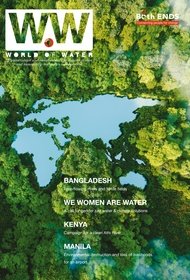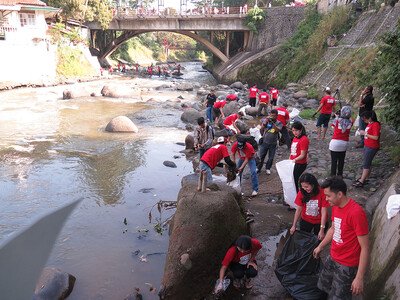A Negotiated Approach for Inclusive Water Governance
A Negotiated Approach envisages the meaningful and long-term participation of communities in all aspects of managing the water and other natural resources on which their lives depend. It seeks to achieve healthy ecosystems and equitable sharing of benefits among all stakeholders within a river basin. This inclusive way of working is an essential precondition for the Transformative Practices that are promoted by Both ENDS and partners.
Water governance is everybody's business
The world is facing multiple water crises. Billions of people are being affected by water scarcity, pollution and floods. Solutions tend to only focus on technical and managerial aspects. However, fundamental governance gaps remain, as local to global power dynamics that created these problems are rarely addressed.
Sustainable solutions in the long run can only be achieved if unequal power relations are adequately addressed. Therefore, Both ENDS and civil society partners support and promote initiatives towards sustainable and just governance of water resources, while also challenging conventional approaches that tend to exclude typically marginalised groups in society.
A Negotiated Approach
Water is a human right, a social good and a common-pool resource. As water is a vital source of life that speaks to every member of society, it is crucial to ensure that water related decision-making processes are transparent, inclusive and gender-responsive. A Negotiated Approach works towards creating and maintaining a level playing field for a collective planning process that seeks to achieve environmental sustainability and equitable sharing of benefits.
Creating political space for local actors
Access to water and land is particularly essential for rural communities; smallholder producers, pastoralists, peasants, fisher folks, and indigenous people often depend directly on these resources for their livelihoods. Yet, local communities often face insecure access to fishing grounds, clean drinking water, and fertile lands.
More often than not, the management of natural resources is done in an exclusive and top-down manner in which local communities are rarely actively involved in planning and decision-making. This results in policies which do not reflect and often conflict with the rights, needs, and realities of local communities.
Contrary to top-down interventions, a Negotiated Approach creates structural political space in which local people acquire a long-term negotiating position over the planning and management of water and other natural resources.
Negotiation: meaningful participation
A Negotiated Approach facilitates local communities and civil society organisations (CSOs) to become full-fledged players in natural resource management at the local and (inter)national levels. Going beyond merely creating a multi-stakeholder dialogue, a Negotiated Approach creates opportunities for local actors to actively develop, propose and negotiate policy measures, based on their own local knowledge, needs, aspirations, and environmental realities. This approach is fundamentally different to most conventional participatory processes in which local groups are often consulted and invited to react to already developed plans by 'experts' or policy makers.
A Negotiated Approach prioritises capacity building of local stakeholders so they can engage effectively in negotiations with policy makers and have a stronger position in the negotiation process, creating a level playing field. Furthermore, the approach ensures that local communities are well prepared to meaningfully participate in the whole negotiation process. This may include gathering data on the physical and biological characteristics of the local environment, understanding the institutional and legal contexts, power mapping, developing negotiation skills, and creating strategic platforms for negotiation.
A long history: Both ENDS and a Negotiated Approach
Both ENDS maintains a long track record of partnerships for inclusive water governance, dating back to the late 1990s. A Negotiated Approach to Inclusive Water Governance was developed in the field through the efforts of community based organisations and NGOs in various parts of the world. We brought together NGOs from various countries (Bangladesh, Bolivia, Cambodia, India, Peru, Thailand, South Africa and Vietnam) that had succeeded in linking local initiatives to higher levels of government. Their location-specific approaches to inclusive water governance have been a response to top-down approaches and the lack of attention to local communities' needs, knowledge, and environmental realities. Using their projects as example, the organisations worked together to develop a Negotiated Approach. The outcome 'River Basin Management: A Negotiated Approach' was published by Both ENDS in 2005, and 'Involving Communities' was published in 2011 in close collaboration with Indian partner organization Gomukh.
Since then, Both ENDS and partners have used a Negotiated Approach in many river basins around the world. By adopting a Negotiated Approach, we can work towards achieving inclusive water governance in which local communities can play a meaningful role in the sustainable management of water and other natural resources.
More information:
Video 'Getting control over natural resources: the Negotiated Approach
For more information
Read more about this subject
-
Dossier
Inclusive ways to sustainable and healthy food for all
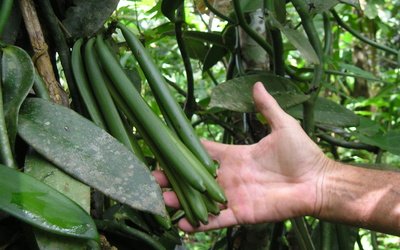
All around the world small-scale farmers are using sustainable and inclusive methods to produce food. Working together with nature and each other, they provide their families and communities with sufficient and healthy food. But their production methods are under pressure from large-scale agriculture and the globally dominant system of industrial food production. Together with our partners, Both ENDS is trying to turn the tide in favour of sustainable, local practices that are mostly known as 'agro-ecological' or 'nature-inclusive'. Why are we focusing on these methods? Agro-ecological practices are climate-proof and inclusive and increase the opportunities for communities around the world to produce their food sustainably.
-
Dossier
Wetlands without Borders

With our Wetlands without Borders program, we work towards environmentally sustainable and socially responsible governance of the wetlands system of the La Plata Basin in South America.
-
Dossier
Participatory Land Use Planning (PLUP)
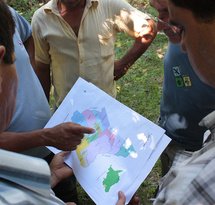
Participatory Land Use Planning (PLUP) is a rights-based approach ensuring inclusive and gender-responsive land governance, especially for those whose rights to land are not fully acknowledged.
-
Dossier
Large-scale infrastructure
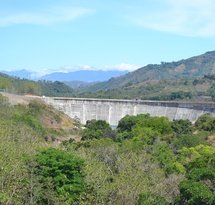
Large-scale infrastructural projects have detrimental effects on local people and the environment, while their benefits are felt elsewhere. Both ENDS is working to ensure that local people have a greater say in decision-making and is investigating the way these projects are funded.
-
Event / 23 March 2023, 09:00 - 11:00
Towards just water governance in Colombia; a dialogue on the Transformative Water Pact
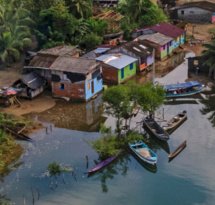
Online side event at the UN Water conference in New York
This event will present The Transformative Water Pact (TWP), an innovative framework for water governance that has been developed by environmental justice experts from around the world. The TWP will serve as a starting point for dialogue between representatives of the government of Colombia, academia, regional and international NGOs in relation to Colombia's current ambitions in multi-scalar water governance.
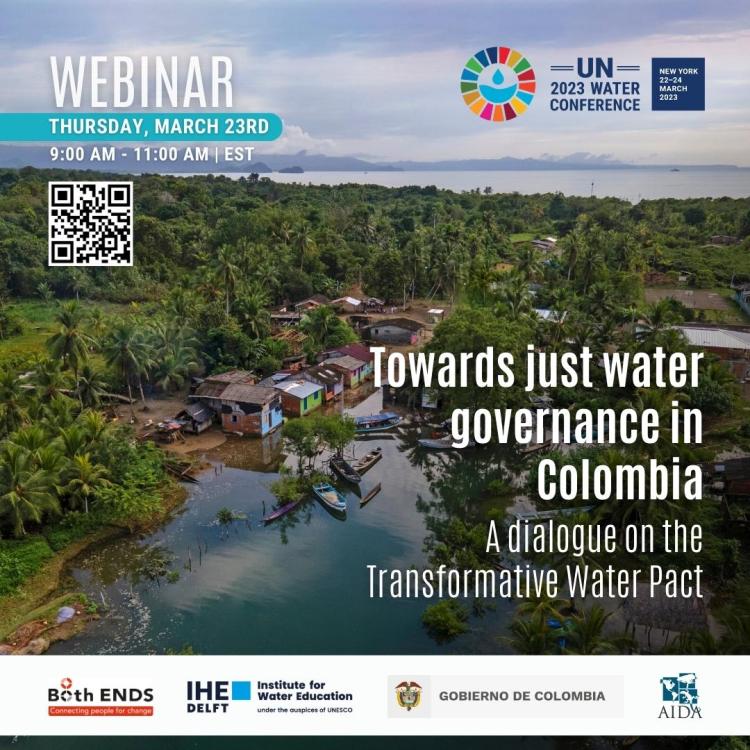
-
Publication / 21 March 2023
-
News / 21 March 2023
Agua es vida: Both ENDS and water governance
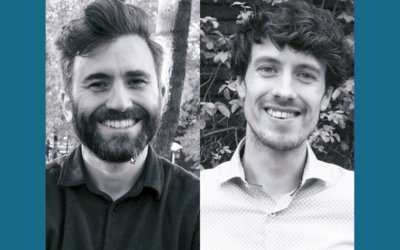
Water is literally life, the lifeblood of ecosystems, of nature, of humans. However, in many places the distribution and use of water is unjust and unsustainable. Water management is generally focused on short-term economic interests, on maximizing the profit of a well-connected few at the expense of people and nature. This dominant view of water and water management has its origins in the European industrial revolution, which became the global norm through colonialism and globalization. But according to Melvin van der Veen and Murtah Shannon, water experts at Both ENDS, this view will have to give way to equitable, sustainable and inclusive water management. Both ENDS cooperates with and supports communities and organisations worldwide who are working to this end.
-
Press release / 20 March 2023
A Transformative Water Pact : A radical response to the global water governance crisis
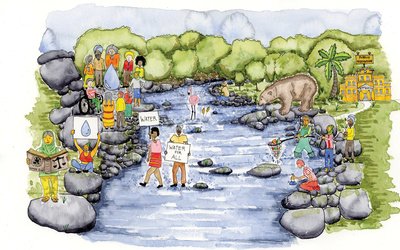
Academics and civil society representatives from around the world came together to articulate an alternative vision and framework for water governance, in the run-up to the UN Water Conference 2023 in New York. The Transformative Water Pact was developed in response to the continued exploitation of nature, neglect of human rights and the extreme power-imbalances that characterize contemporary water governance throughout the world. It details an alternative vision of water governance based on the tenets of environmental justice, equality and care.
-
News / 22 March 2022
World Water Day: just climate solutions already exist
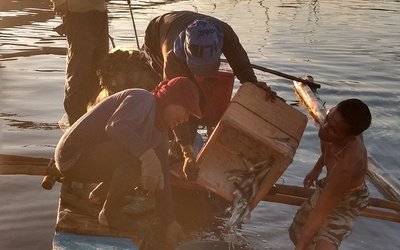
These past weeks we have been joining the #WeWomenAreWater campaign to put the spotlights on just climate solutions of and for women, girls, trans, intersex and non-binary people around the world. The campaign started on International Women's Day (March 8th) and ends today, on World Water Day. Just climate solutions already exist but these initiatives are grossly underfunded, and the people implementing them are also those most impacted by climate change and climate-related water scarcity. Therefore, we would like to highlight, especially today on World Water Day, some of these solutions below. And we also have a special message from the colleagues at Both ENDS working on inclusive water governance.
-
Event / 23 August 2021, 13:00 - 14:00
World Water Week seminar: the politics of water and the choices we can make
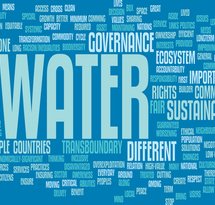
What do we mean when we say the 'politics of water'? How are the distribution of water and the access to water influenced by political-economic interests? And who has the power to reverse the flow and change tides?
-
News / 19 August 2021
Violet Matiru: “Communities around colonial Ruiru I Dam still struggle”
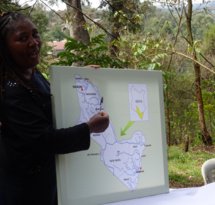
After many years of advocating for strong environmental policies at international platforms such as the UN, Kenyan Violet Matiru asked herself: "How does all this lobbying trickle down to our communities? How does this help our mothers who are still struggling with fetching water and cooking on wood stoves?" This is when she and her colleagues founded MCDI Kenya (Millennium Community Development Initiatives) and started to work with local communities. We talked to her about the historical and current power imbalance in water governance and her efforts to improve water governance in the Athi River basin, that runs all the way from upstream of Nairobi, through the city, into the Indian Ocean.
-
News / 13 August 2021
Food sovereignty in the polders of Southwest Bangladesh
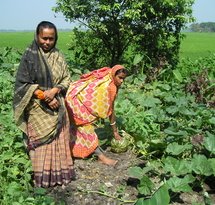
The situation in the southwest delta of Bangladesh is critical. Because of sea level rise, floods are increasing and the area is about to become uninhabitable, despite Dutch-style dikes and polders built in the previous century. Partner organisation Uttaran works with local communities on climate-friendly solutions that restore the living environment and give the inhabitants a say about their future and food production.
-
External link / 19 June 2020
Community-based governance for free-flowing tidal rivers (Annual Report 2019)
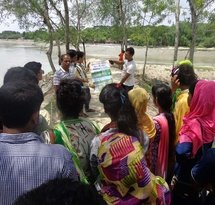
Tidal River Management (TRM) is based on age-old community practices. In 2019, Uttaran helped ensure that TRM was seen by policymakers as a solution to waterlogging in the delta of Bangladesh, and that the voices of women and youth were being taken into account.
-
Video / 8 November 2019
Athi River Community Network

The Athi River Community Network is made up of communities who live along the Athi River watershed. Members of the Athi River Community Network promised to join forces with the Friends of Ondiri Wetland to ensure that this critical wetland is restored and conserved for the sake of current and future generations.
-
News / 5 July 2019
Philippines: The People’s Plan for Manila Bay
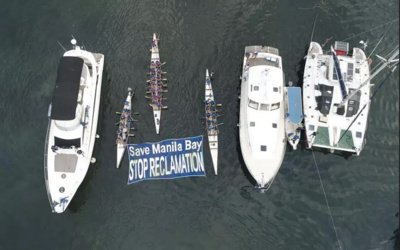
Manila Bay is crucial site for biodiversity and home to over 23 million people, but their wellbeing is at risk due to reclamation projects, which are part of a large-scale top-down masterplan for the bay. It is estimated that more than 11 million people are threatened with displacement due to land reclamations and related disaster risks. As an alternative, Kalikasan is developing a People's Plan.
-
News / 4 July 2019
Bangladesh: Involving communities for free rivers
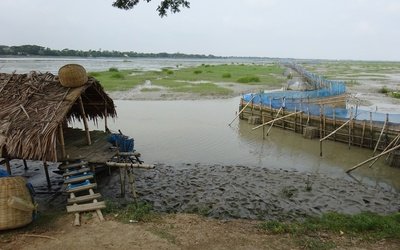
Tidal rivers in the southwest coastal area of Bangladesh have been dying since flood plains were replaced by Dutch-style polders in the 70s. Rivers are silted up, and during monsoon season water gets trapped within embankments. Every year, this situation of waterlogging inflicts adverse consequences particularly on women, as they take care of the household in waterlogged conditions in the absence of men who travel to the city in search of temporary work. NGO Uttaran is advocating for a change in policy and practice.
-
News / 3 July 2019
Kenya: Community Network for a healthy Athi river
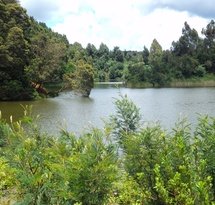
Through pollution and water scarcity, communities along the Kenyan Athi River have learnt the hard way that upstream and downstream communities are inevitably connected. In response to indiscriminate impacts on the environment and people's livelihoods, civil society organisations within the Athi River Basin formed the Athi River Community Network (ARCN).
-
News / 2 July 2019
Indonesia: Women’s Right to Water
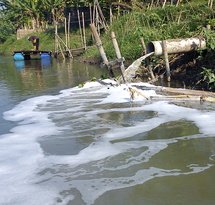
The water quality of East Java's largest river, the Brantas River, is increasingly deteriorating due to a combination of industrial and household waste. This environmental pollution has a disproportionate impact on women. Yet, their participation in decision-making remains lacking. ECOTON is working to improve the situation.
-
Blog / 5 October 2018
ECOTON (or the rollercoaster of Surabaya)
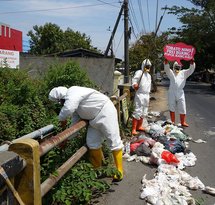
From the first moment I arrive in Surabaya, I enter the rollercoaster called ECOTON. I'm visiting them to get to know the work of this long-time Both ENDS partner, and have only three days for this. But ECOTON does a lot, and all of it at the same time. Tirelessly, they work on the protection of the Brantas River.
-
News / 26 September 2018
Temporary ban on new hydro dams in the Brazilian Pantanal
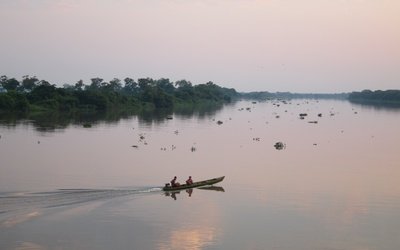
Good news from Brazil! The National Water Agency (ANA) has stopped issuing new permits for the construction of hydroelectric dams in the Brazilian Paraguay river basin, which is part of the Pantanal wetlands in South-America. The suspension will last at least until May 2020, after the publication of a comprehensive socio-economic and environmental impact assessment that the ANA started in 2016.



